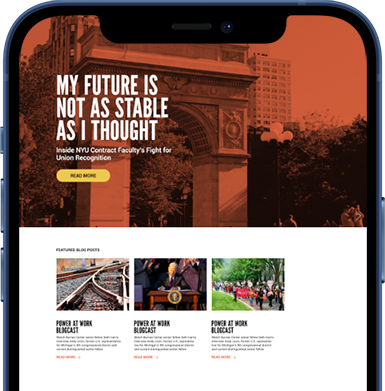As predicted on the Power at Work Blog three months ago, the National Labor Relations Board (Board) has reinstated a longstanding test for determining which workers are "employees" covered by the National Labor Relations Act (Act) and, therefore, entitled by law to organize and bargain collectively with their employers. The Board announced in The Atlanta Opera Company, issued on June 13, 2023, its resuscitation of a straightforward application of the common-law test used to define "employee."
The Board's decision this week overturned a Trump-era decision that had skewed the application of the common-law test to reduce the number of workers classified as covered "employees." Only those workers classified as "employees" are entitled to the protections of the Act. "Independent contractors" were excluded by Congress when it enacted the Taft-Hartley Act in 1947. The Trump Board's 2019 decision in Super Shuttle held that workers' “entrepreneurial opportunity” was the most important factor in determining "employee" status, especially when an analysis of the other factors did not point conclusively to one status or the other. The Atlanta Opera Company restores the previously well-established and widely accepted rule that “all of the incidents of the relationship must be assessed and weighed with no one factor being decisive.”
The immediate outcome of the Board's decision is that the wig masters and makeup artists of the Atlanta Opera Company will get the union they chose to represent them. These workers voted in a union representation election in July 2021. Because the employer challenged the workers' eligibility to vote in the election, the Board impounded the ballots pursuant to another rule (since rescinded) established by the Trump Board in 2019. The ballots were finally opened and counted in March 2023. All the employees who participated, and a majority of those who were eligible, voted to be represented by the International Alliance of Theatrical Stage Employees (IATSE) Local 798.
The broader implications of this new decision are not as well known. Some unknown number of workers in industries will have their rights to organize and bargain collectively restored, including those industries where employee misclassification is common like construction, health care, and trucking. Some employers seeking to defeat union organizing efforts or avoid liability for unfair labor practices will be deprived of the argument that the involved workers are not protected by the Act. But The Atlanta Opera Company does not resolve some lingering and large questions, like whether Uber, Lyft, and Door Dash drivers are "employees" under the Act or any other labor or employment law.
In essence, the Board has reinstated a legal test that is better than the Trumpian alternative, but still lacks clarity and leaves workers guessing at whether their rights will be protected.

